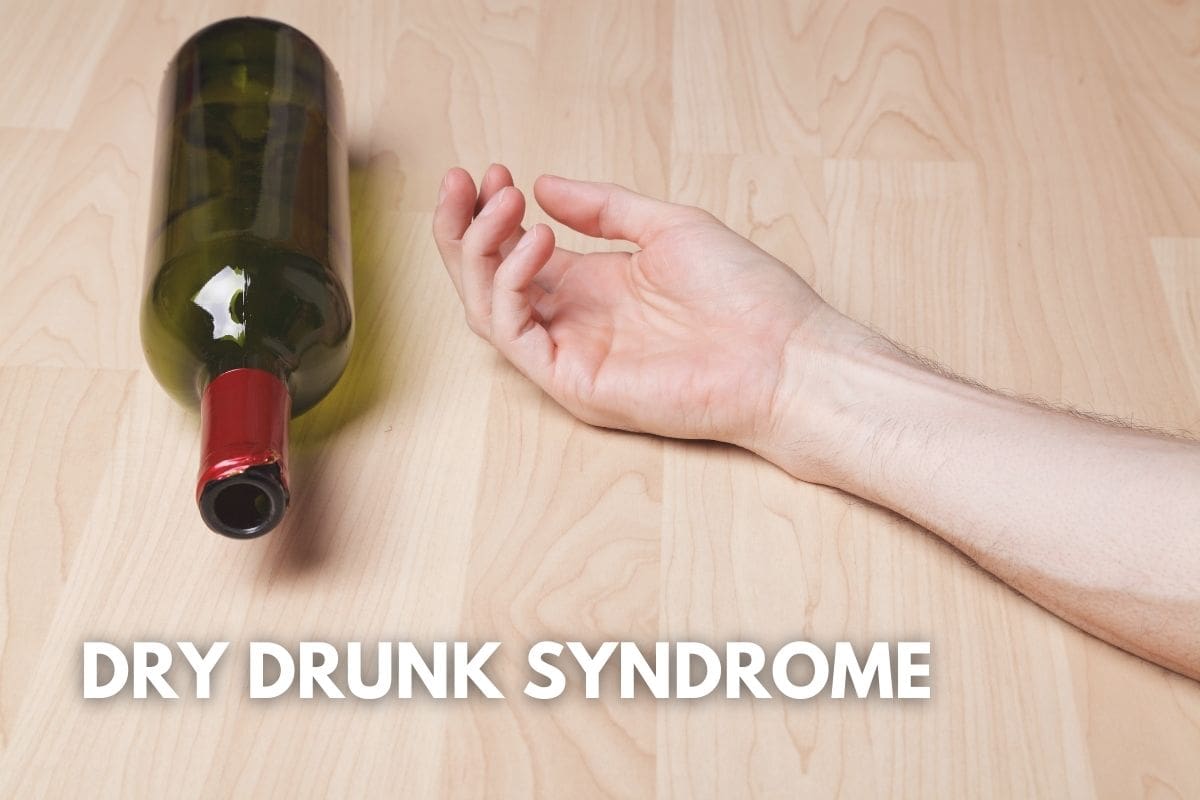Recovering from alcohol addiction can be a long and challenging, but extremely rewarding experience for those who are strong and dedicated to getting better. The decision to stop drinking is an honorable first step. However, there is a significant mental and emotional aspect to recovering from alcohol abuse as well. Recovery is way more complicated than simply consuming alcohol. The recovering addict must look at all of the difficult emotional, mental, behavioral, and environmental factors that led them to abuse alcohol in the first place.
Dry Drunk Syndrome is a prime example of a problem that a recovering addict might face on their long road to sustained recovery.
What is Dry Drunk Syndrome?
One common problem that a recovering alcoholic may face is “dry drunk syndrome.” The term originated from the creator of Alcoholics Anonymous (AA). It describes the traits of an individual who has quit drinking alcohol but has not dealt with all of the emotional baggage that comes with recovery. Someone coping with Dry Drunk Syndrome might still be dealing with the destructive, negative feelings and thought patterns they were experiencing during their addiction.
Dry-Drunk Syndrome can be a part of a larger condition called post-acute withdrawal syndrome (PAWS). PAWS occurs when a person’s withdrawal symptoms last longer than expected.
What are the Symptoms of Dry Drunk Syndrome?
Dry Drunk Syndrome comes with some common signs and symptoms. Symptoms of Dry Drunk syndrome can also resemble the same feelings and emotions the individual was experiencing while drinking. Symptoms can also resemble the symptoms of late withdrawal. An individual exhibiting one or more of these behaviors might be dealing with Dry Drunk syndrome.
- Negative feelings and anger surrounding their recovery
- Anxiety, Depression, or fear of relapsing
- Jealous of family and friends that are not dealing with addiction
- Isolating themselves from their support circle
- Replacing the addiction with a new addiction such as food, sex, or the internet.
- Superior or self-centered attitude
- Poor impulse control
- Romanticizing their drinking days
It is important to remember that Dry Drunk Syndrome doesn’t happen overnight. Often, these symptoms develop slowly over time. They are especially common during the first year of recovery.
The link between Dry Drunk Syndrome and one’s mood
Along with the symptoms listed above, studies have revealed that Dry Drunk Syndrome can be heavily related to mood swings. Therefore, individuals coping with Dry Drunk Syndrome may also exhibit the following changes in their mood or emotional state.
- Hopeless feelings about their ability to stop drinking
- Low spirits
- Impatience or restlessness
- Anxiety about maintaining their sobriety
These symptoms can be a sign that an individual is about to relapse.
The Relationship between Dry Drunk Syndrome and Relapse?
While some people have suggested that people exhibiting Dry Drunk Syndrome symptoms are about to use alcohol again, this may not always be true.
The key here is how you describe the term “relapse.” One addiction treatment specialist defines “relapse” as the thought patterns, behaviors, or emotions that trigger use instead of returning to use the substance.
This is a remarkable way to re-define relapse because it describes relapse as a process instead of a single event where the individual starts using again. It allows the individual to identify and assess their thoughts and behaviors before they actually use, decreasing their tendency to actually use the substance.
It is important to remember that relapsing is a normal part of recovery. When you define the term “relapse” in this way, it has two profound benefits. The person exhibiting Dry Drunk Syndrome is already experiencing relapse (without actually using the substance again). However, they realize it is an entirely normal part of recovery, and they don’t have to feel bad about themselves for “relapsing.” Second, they have “relapsed” without actually using the product.
Coping With Dry Drunk Syndrome
Now that we have discussed how to identify if you have Dry Drunk Syndrome, let’s discuss how to cope with it and manage it, so it has a minimal impact on your life. As mentioned earlier, the first step is to remind yourself that Dry Drunk Syndrome is a completely normal part of your recovery. Being too hard on yourself will only make you feel hopeless and unable to manage your symptoms. You can take the following steps to minimize the impact of your Dry Drunk Syndrome.
Reach Out to Others
An essential part of your recovery is being able to connect with a support circle. Talking to loved ones about your alcohol use and recovery process can help take some stress off your shoulders. Others will be able to support you during stressful times when you may feel triggered to drink again.
You can also reach out to others who are in recovery from alcohol abuse. This is a crucial part of recovery because it helps you realize you are not the only one to face these problems. Many others are struggling with the same battles that you are. Support groups can also be helpful because you guys can share helpful coping strategies.
Dedicate Yourself to Self-Care
Taking care of yourself is another important step of the recovery process. Self-care helps nourish your mind, body, and soul. Overall, you will feel like a happier person, more able to accomplish your goals, and less likely to revert to your old ways. You can try the following activities to take better care of yourself:
- Exercise or perform some kind of physical activity at least once a day
- Make sure you are drinking plenty of water and eating healthy
- Make sure you get enough sleep
- Spend time doing fun activities with your loved ones
- Get out and spend time in the sun.
You don’t have to start doing all these things at once. Taking baby steps can be a very successful method to creating a positive lifestyle change. Make a goal of doing just one of these things a day, and work your way up.
Create New Coping Habits:
Developing positive coping methods can help you manage your emotions and triggers about drinking. You can add the following coping techniques into your lifestyle to help you manage your emotions and behaviors.
- Breathing techniques – They can help you feel calm and cope with moments of anger or frustration.
- Grounding techniques – These can help you deal with challenging or negative thoughts.
- Yoga/Meditation – These can help calm your mind, train you to focus, and provide positive distraction.
- Journaling – Journaling is an excellent way to release built-up emotions, feelings, or thoughts. It can also help you realize how some of your thoughts may be irrational when you see them written down.
- Hobbies – Doing any activity you enjoy, such as sports, painting, gardening, or home improvement projects, will help you feel happy and distract you from your negative triggers.
One thing to remember is that your hobbies or coping methods might not automatically feel enjoyable during your early periods of recovery. You should still keep doing them. In time, you will find pleasure in doing these activities again.
If your mood doesn’t improve after trying the activities for a long time, consider switching to another coping technique or discovering a new hobby.
DON’T BE TOO HARD ON YOURSELF!
This one is KEY. Recovery can be a challenging process and requires a lot of strength and courage. Understanding your bravery and having love and support for yourself will help you tremendously during your recovery process.
Make sure to nurture yourself and practice patience during times you are feeling hopeless and guilty. If that doesn’t seem to work, think of what you might say to a loved one or how you would feel about them if they were in your shoes.
Identify Your Cause for Drinking
Along with quitting alcohol, a crucial part of recovery is assessing the underlying factors that caused you to drink in the first place. Making the necessary environmental, behavioral, emotional, and social changes in your life will help you maintain your sobriety even more than simply quitting alcohol.
Seek Professional Help
Having the support of a professional therapist can be tremendously helpful during your recovery process. Knowledge is power, and an addiction expert can expose you to new information about your battle you may not have known before. They can also work with you to assess the underlying cause of your drinking and develop new coping mechanisms.
Alcoholism can deteriorate your mental health, physical health and can easily lead to death. If you or a loved one is suffering from alcohol abuse, we are here to help you.
Click here to learn more about all of the available resources and professionals ready to help you take control of your life and health!


































